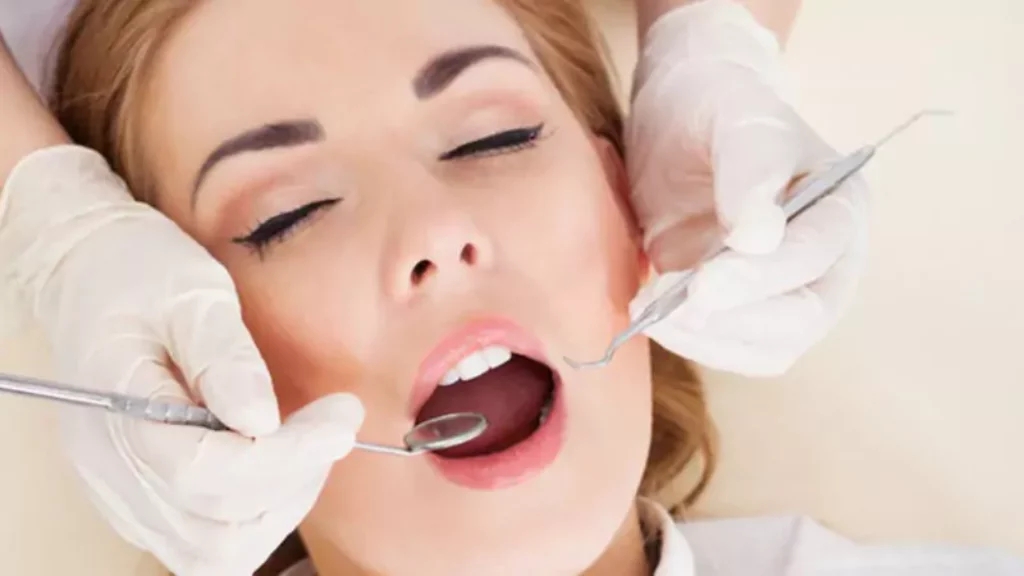Dental care can be uncomfortable and even painful. Unfortunately, this pain can also affect your mental health. Your dentist or dental hygienist can provide a type of sedative called local anesthetic to help you relax. These medications help make the treatment time faster, so you can get all the work done with less pain and stress.
What Is Dental Sedation, And How Does It Work?
Dental sedation is a safe, effective way to get your dental care without the discomfort of general anesthesia. The goal of dental sedation is to relax you so you feel less anxious or fearful about the procedure, so your dentist can perform more complex procedures without you feeling any pain.
As standard, dental practices use several types of dental sedation. The sedation type depends on the procedure, the patient’s medical history, and preference. Websites such as nepeandentalsedation.com.au offer practitioners and patients with resources to educate them (mostly the latter) about dental sedation.
These are the most common types of sedation you can find in dental practices:
- Oral Sedation: Oral sedation involves taking a prescribed pill before your appointment to help you feel more relaxed. You might feel drowsy and may even fall asleep during the procedure.
- Inhaled Sedation: In contrast, inhaled sedation involves inhaling nitrous oxide (‘laughing gas’). Your dentist will cover your nose with a mask so you can breathe in this gas. Its effects wear off quickly, so this type is typical for short procedures.
During the dental procedure, your dentist will monitor your vital signs closely, such as heart rate and blood pressure, to ensure your safety.
Tips On How To Prepare For Your Sedation Dentistry Appointment
Going pain-free at the dentist is now possible with sedation. This type of treatment can help you conquer your fear of the dentist. Before you head to your appointment, here are several things to keep in mind to make the experience as comfortable and safe as possible:
- Inform your dentist of any medications you’re taking: Tell your dentist about any prescription or over-the-counter medications you’ve taken in the past three days. You might want to include any herbal supplements or vitamins. Letting them know is critical because these may interact with the sedation medications in your procedure.
- Follow any pre-appointment instructions: Your dentist may give you specific instructions to follow before your appointment. They may tell you not to eat or drink for a certain number of hours before the procedure. Be sure to follow these instructions carefully.
- Discuss potential risks: While dental sedation is generally safe, there are still some risks. Discussing potential risks with your dentist beforehand is critical, so you follow the dentist’s instructions closely and follow up with them after the procedure. This way, you can ensure you take all the necessary steps to protect your safety and health.
- Wear loose, comfortable clothing: You may lie down for an extended time during your procedure. So it’s essential to wear loose, comfortable clothing to allow easy movement.
- Arrange for transportation: The effects of the sedation medication usually take several hours to wear off completely. That means you won’t be able to drive yourself home. Make sure you’ve arranged for someone to take you to the clinic and home afterward.
- Get a good night’s sleep: As with any other medical procedure, it’s vital to get a good night’s sleep before your appointment. Proper rest helps you relax and feel rested.
Preparing yourself before, during, and after the procedure won’t allow room for any complications. Most importantly, follow your dentist’s instructions to help you recover quickly.
What To Expect During The Procedure
Dental sedation is usually a safe and effective way to reduce dental anxiety and pain during treatment. Here’s what to expect on D-day:
- Arrival at the office: Upon arrival, the receptionist will ask you to complete any necessary paperwork. Your dentist will then review the sedation and dental treatment plan with you and answer any questions you may have.
- Administration of sedation: The type of sedation you receive depends on the procedure and your individual needs. Your dentist may give you a pill before the process or administer the medication through an IV.
- Dental procedure: While under sedation, the dental team will monitor you to ensure your safety and comfort. You may feel tired or dizzy, but you can still respond to verbal commands.
- Follow any post-appointment instructions: After the procedure, your dentist will give instructions for caring for your teeth and mouth. Be sure to follow these instructions carefully to ensure a successful recovery.
- Follow up with your dentist: Make sure to raise questions or concerns you may have after your procedure. And don’t hesitate to contact your dentist for follow-up care.
On the way to the clinic, you can’t go wrong with listening to some relaxing tunes. And after the procedure, ask whoever is driving to get you some ice cream!
Final Thoughts
Overall, sedation can help make dental procedures less stressful and more comfortable for patients with anxiety or phobia about going to the dentist. It can also allow your dentist to complete longer or more complex procedures in a single appointment rather than requiring multiple visits. Most importantly, cooperate with your dentist during and after the procedure. Good luck!
